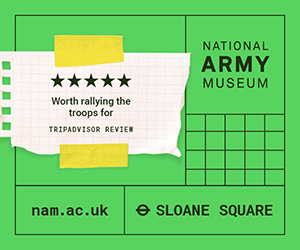Primary Times - the definitive what’s on and where to go family guide of activities and events for children of primary school age. Things to do with your kids during the school holidays including arts and craft activities, music and theatre for children, parties, competitions, days out, and family attractions along with term time drama schools, dance classes, after school clubs and sports activities. Things to do at a place near you!
The value of learning to play a musical instrument
 Music is no longer for a few select kids who are labelled as gifted. Many children learn for fun as a rewarding extra curricular activity.
Music is no longer for a few select kids who are labelled as gifted. Many children learn for fun as a rewarding extra curricular activity.
Learning a musical instrument can contribute to overall mental development over the longer term. There are advantages in terms of improved concentration, the ability to memorise, recognising patterns of sound and pitch, as well as transferable skills.
With the development of social media, adults and children alike become absorbed in the numerous functions of their mobile devices, and sometimes real relational skills can suffer. In contrast: developing musical skill requires an ability to understand and connect to others, thereby developing social skills.
Singing in a choir, playing in an orchestra or band involves collaborating towards achieving a shared goal in performance. Your child can develop a new circle of friends who have a common interest.
People of all ethnicities enrich music making and music therapy can help children who have special needs or who may be isolated or vulnerable. The Nordoff Robbins music therapy charity provides treatment for a range of conditions including autism.
Research has shown that even for people with serious mental illnesses, if they attend a music therapy group in which patients are supported to create improvised music with the music therapist in a structured way, they become less withdrawn and more able to relate to others. This method can have a lasting effect.
Spontaneous music making helps mental integration contributing towards enhanced cognitive function, hand/eye co-ordination, muscle memory and an embodied sense of awareness. The physical effect of blowing a wind instrument can stimulate the endocrine system to produce the ‘happy’ hormonal response, as opposed to cortisol stress hormone, which is common when there are lots of academic pressures.
Developing instrumental skill involves regular uninterrupted time for focused practise. Approached in the right way this is pleasurable and rewarding rather than a duty. Over time, a child’s imagination is stimulated and emotional sensitivity to the feelings in the music develops. Motivation is enhanced when succeeding in making progress.
There are many criteria to consider when choosing the right instrument for your child. This becomes clear when the instrument itself becomes a pleasurable ‘ go to’ place of self-expression.
An early introduction to musical life can help. For example, The South Bank series in London include Gamelan, Drumming and Gong workshops for children as young as three to five years. Hand Drumming circles are not just the reserve of London however, they are becoming more popular around the country. They can give an immediate sense of reward, as the tactile feel of the drums is very immediate and easy, which is important for many young children.
The top orchestras provide concerts aimed at children where the different instruments of the orchestra are identified and demonstrated. If your child notices a particular sound and is curious to explore this further, this can be the moment when they become enchanted.
A small child would start on a half or quarter size violin, viola or cello, graduating to full size as they grow. They will discover how to play in a homogenous string section, which generally does not feel too exposing. If your child aspires to be a soloist then choosing a woodwind or brass instrument may provide more opportunities. Brass instruments require strong breath support so it is best that your child has developed sufficiently well physically before starting.
The Clarinet and flute are not as expensive as the oboe, bassoon or french horn. The oboe and bassoon are ‘double reed’ instruments. The reed has a finite life and must be replaced every so often. Of course, your child might not be interested in traditional orchestral instruments, perhaps preferring something more suited for popular music. Guitar, bass, keyboards all provide similar opportunities to learn musical theory, hone motor skills and if playing in a band, can also encourage social skills. Playing in a band or an orchestra gives children the ability to integrate, to listen to others, to follow, support as well as to lead and shine.
Different instruments suit different types of people. Learning the piano may feel solitary but is essential if studying music as a profession as first and second study instruments are required, whilst the guitar remains popular for aspiring singer songwriters. Of course, the most important thing about learning any instrument is developing a love for music and playing. The value of learning to play a musical instrument
Dr Stella Compton-Dickinson is a Health and Care Profession council registered music therapist, accredited supervisor, professional oboist, teacher and lecturer, UKCP and BACP registered Cognitive Analytic Therapist and Supervisor. She has her own private practice and twenty years’ experience in the National Health Service as a Clinician, Head of Arts Therapies and Clinical Research Lead. Her research was awarded the 2016 Ruskin Medal for the most impactful doctoral research.






